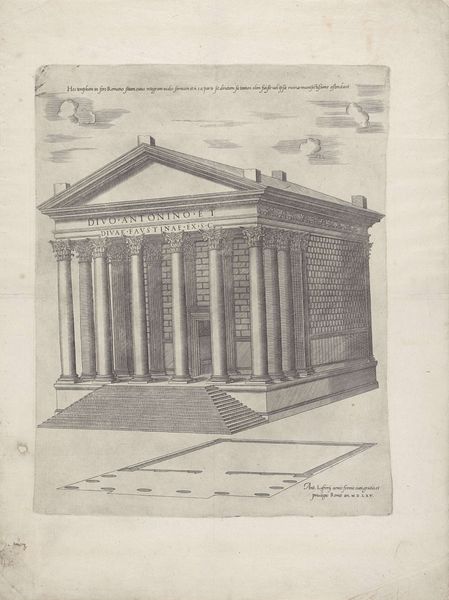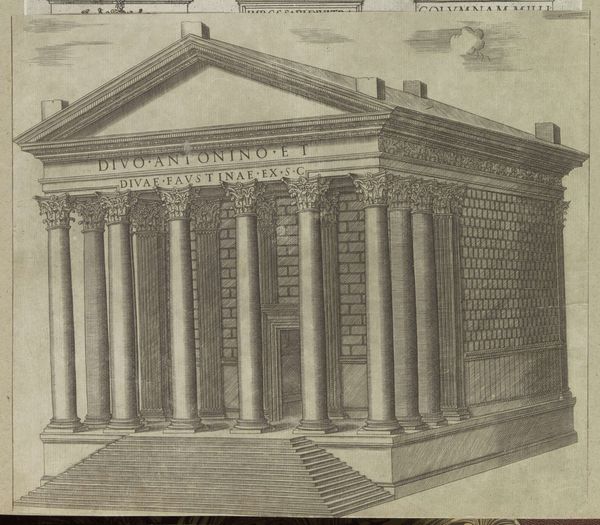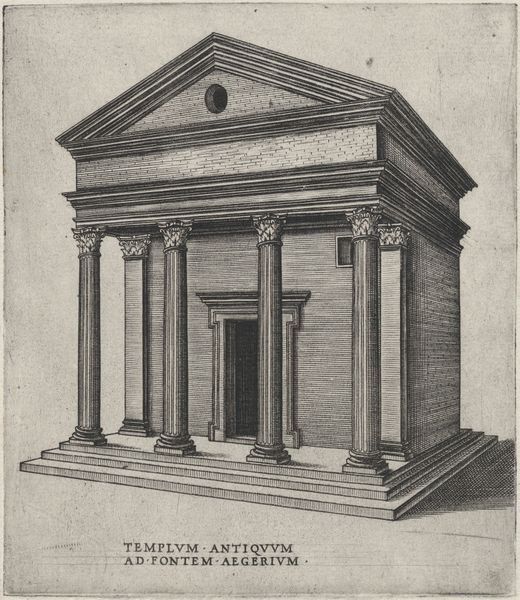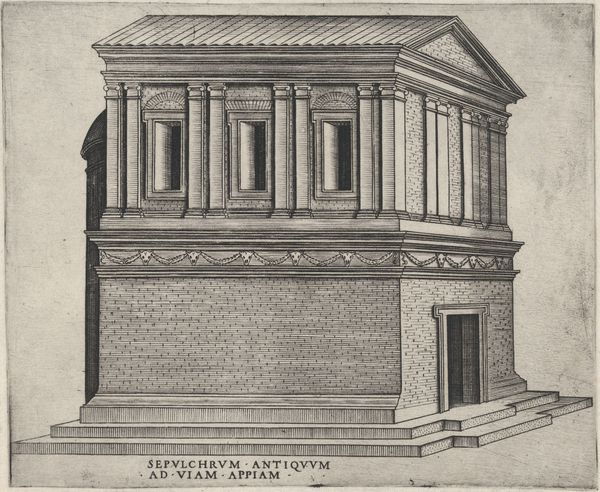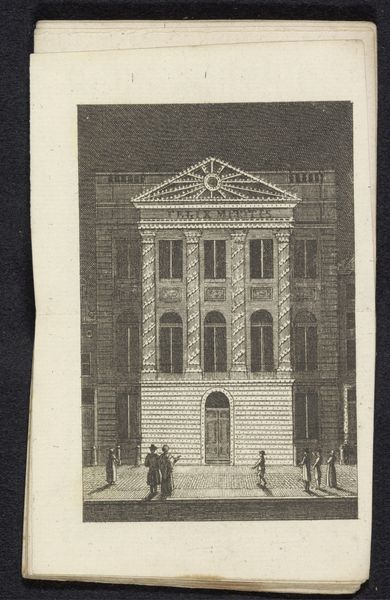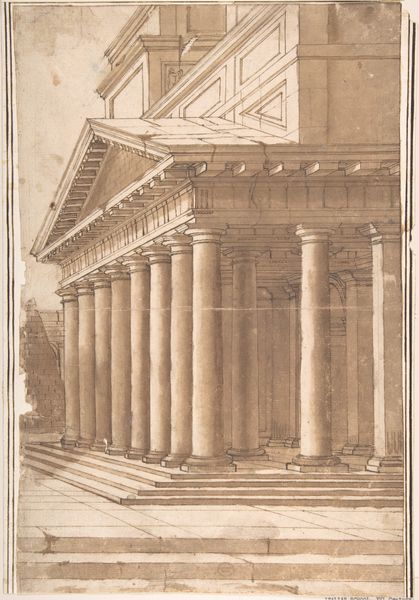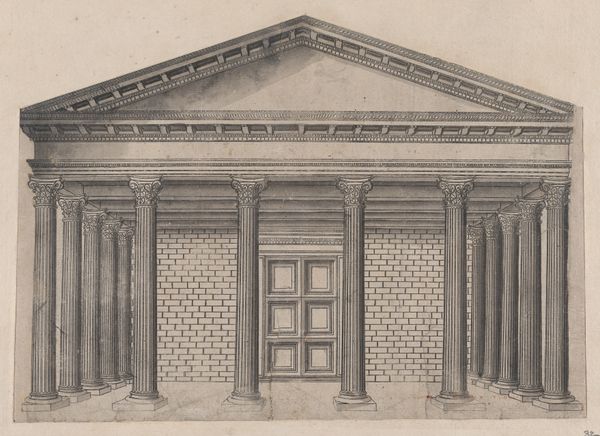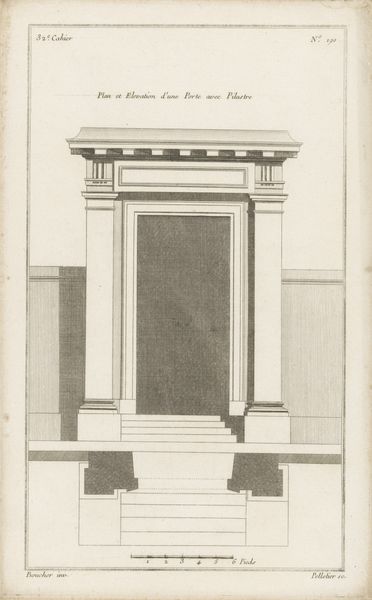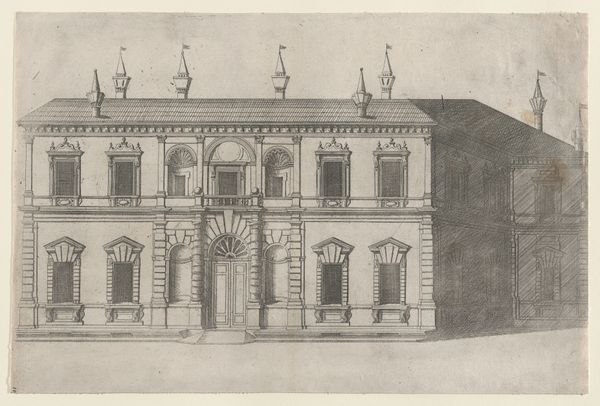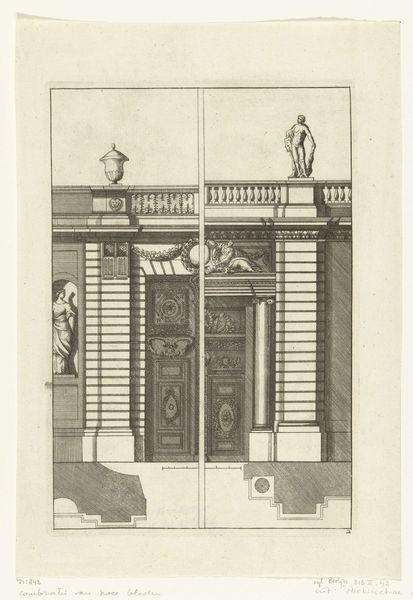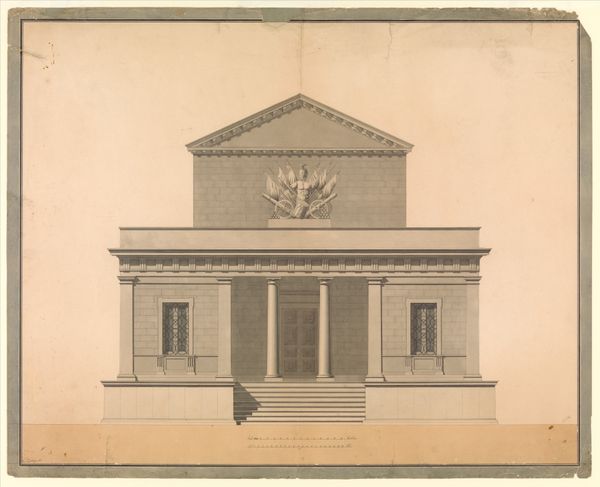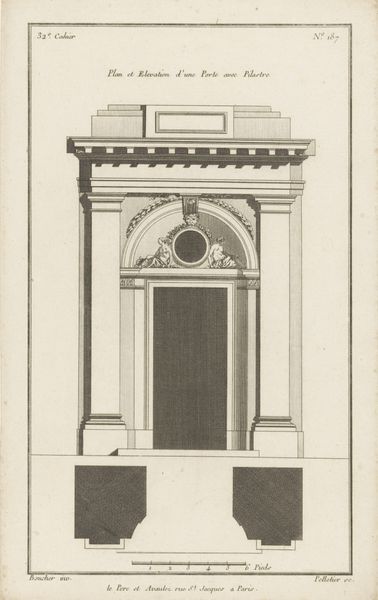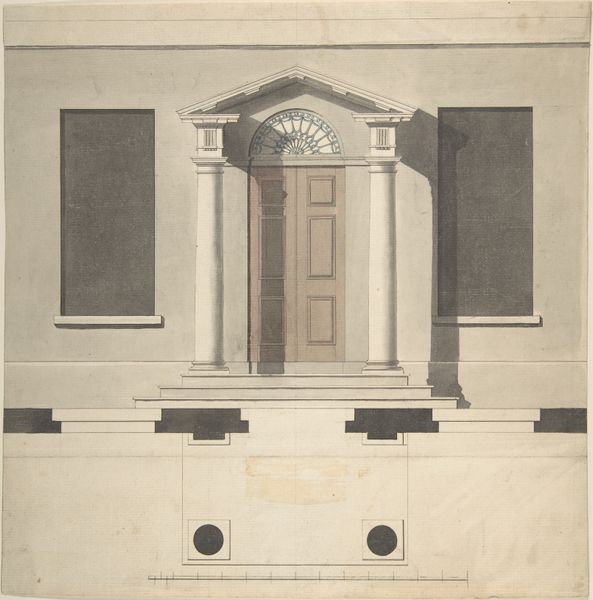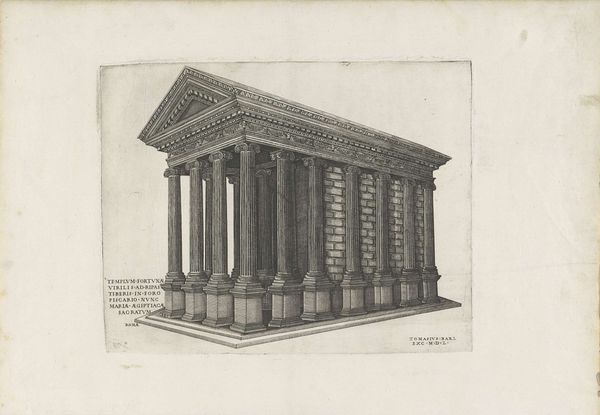
Speculum Romanae Magnificentiae: Temple of Antoninus and Faustina 1565
0:00
0:00
drawing, print, engraving, architecture
#
drawing
# print
#
11_renaissance
#
geometric
#
line
#
cityscape
#
italian-renaissance
#
engraving
#
architecture
Dimensions: sheet: 16 1/8 x 12 5/8 in. (41 x 32 cm) mount: 20 11/16 x 14 15/16 in. (52.5 x 38 cm)
Copyright: Public Domain
This print of the Temple of Antoninus and Faustina, part of a series titled *Speculum Romanae Magnificentiae*, was likely created in Rome using etching and engraving techniques sometime in the mid-16th century. The printmaking process involves meticulous work: the artist uses sharp tools to cut lines into a metal plate, which is then inked and pressed onto paper. The very precision required by engraving lends itself well to architectural representation, and the depiction of this temple is astonishingly detailed. Note the texture of the stone blocks, the fluting of the columns, and the elaborate ornamentation of the entablature. But the material is important for another reason too. Prints like these were relatively inexpensive and easily portable, allowing for the mass dissemination of images and ideas about classical architecture. In a sense, printmaking democratized architectural knowledge, making it accessible to a wider audience beyond the elite circles of architects and patrons. It also fueled the Renaissance fascination with the grandeur of ancient Rome. This temple, memorialized on paper, became a touchstone for architects and artists across Europe.
Comments
No comments
Be the first to comment and join the conversation on the ultimate creative platform.
